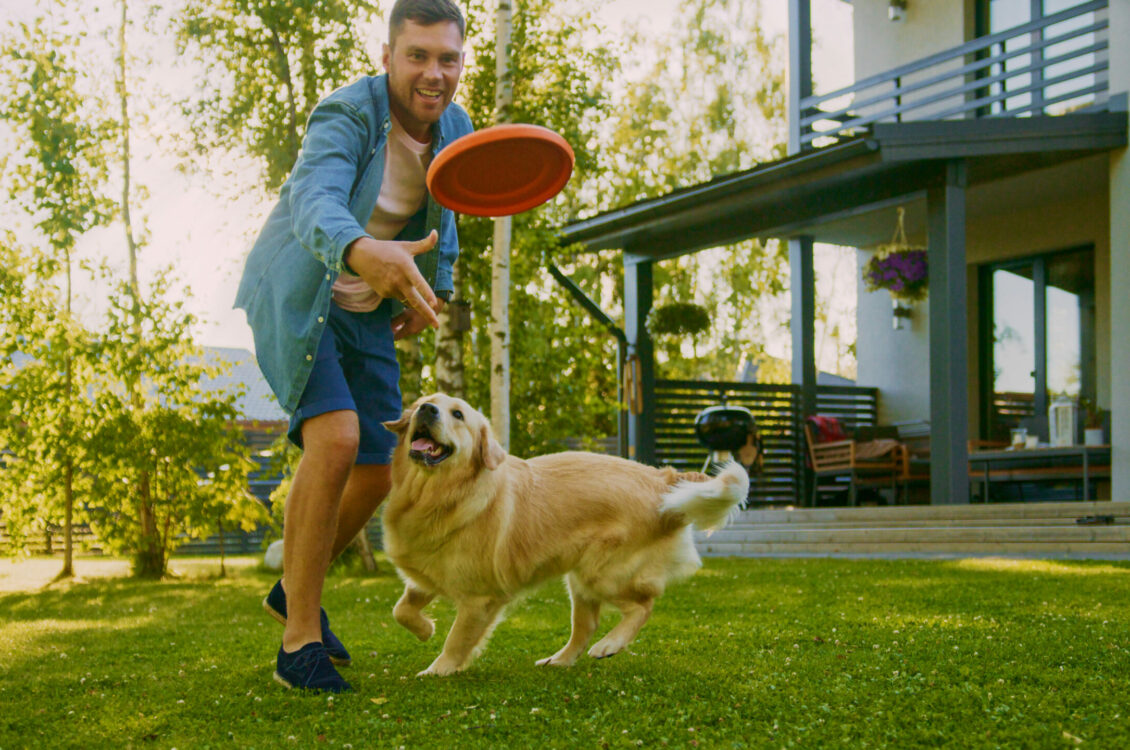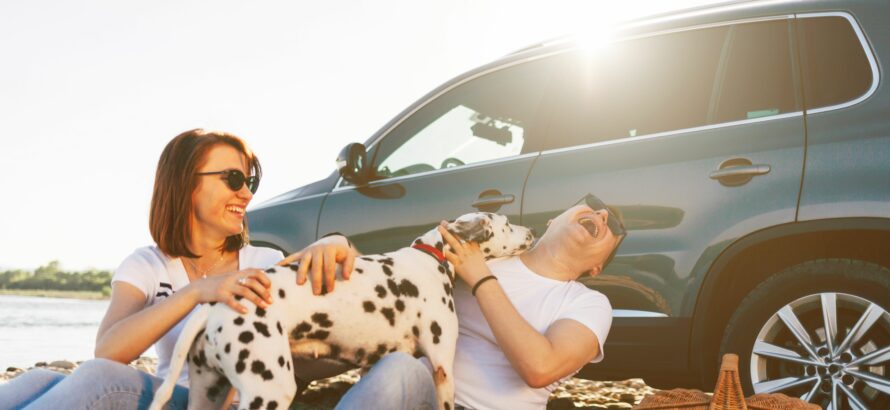
“Cancer” is the word every dog-lover dreads, and for good reason. Skin cancer, bone cancer, and internal cancers claim the lives of many dogs. But if you know the symptoms of cancer in dogs, you can help to catch canine cancer early, giving your pet the best chance for treatment to extend life, and possibly even to cure cancer.
“Early detection really is key to fighting cancer in dogs,” said Carol McConnell, DVM, MBA, Nationwide’s Chief Veterinary Officer. “There are far more options when illness is caught in early stages, and that’s especially true when it comes to cancer in dogs.”
As you might imagine, different cancers in dogs have different warning signs – skin cancer in dogs can have different symptoms than an internal cancer. But veterinarians advise watching for these signs, and following up with your pet’s own veterinarian as quickly as you can.
1. Lumps, bumps and swelling
Get in the habit of regularly going over your dog’s entire body, something you’ll both enjoy. Your dog thinks he’s being petted – and he is! – but the goal is to become familiar with any changes. Lumps and bumps – especially those that seem to be getting larger – need to be checked out by your veterinarian. Your veterinarian may recommend that the lump be aspirated, a procedure done with fine needle to draw out material from inside the lump to examine closely. This will help to determine if further treatment is necessary.
Another skin issue to watch for: Wounds or sores that don’t seem to be healing.
2. Smells and discharges
The idea that “doggy breath” is normal or that dogs are just smelly is false. Dogs with very bad breath could be dealing with painful, rotting teeth and gums, or the odor could be a sign of cancer. In fact, any foul odor coming from your dog, assuming it’s not from something he has rolled in, could be a symptom of cancer in dogs. So, too, can discharges from any opening, or any vomiting or diarrhea that doesn’t resolve quickly and for which your veterinarian can’t find a ready cause.
3. Unplanned weight loss and loss of appetite
While many dogs need to lose a little weight, if your pet is getting lighter without you trying to thin her down, your dog needs to see her veterinarian. Weight-loss without an explanation can be a symptom of cancer in dogs, as can a loss of appetite.
Don’t be concerned if your dog misses a meal here or there, but any persistent change in eating habits is cause for concern. The same holds true if your dog seems to be having difficulty eating or swallowing. Again, the problem could be painful teeth and gums (and these can be and must be promptly addressed), but problems eating and swallowing could also be a symptom of cancer in dogs.
4. Limping, or lack of interest in activity
It’s true that older dogs slow down compared to when they were puppies and young adults, but if your dog’s behavior changes in a short period of time – as opposed to gradual, with normal aging – cancer could again be at the root of the issue. Limping for no apparent reason (such as an injury, or arthritis) can also be a concern when it comes to cancer in dogs. Dogs who have difficulty breathing, or seem to “run out of steam” quickly can also be exhibiting concerning behavior that may mean cancer.
Even if it turns out to not be canine cancer, your veterinarian may be able to address the issues causing what seems to be premature aging, whether that’s helping you get extra weight off your pet or treating the arthritis.
5. Difficulty with normal elimination of body waste
Straining to defecate or difficult urinating can both be symptoms of cancer in dogs. Seeing your veterinarian will get an accurate diagnoses and course of treatment, whether the underlying issue is cancer or something else.
More treatment options than ever
While no diagnosis of cancer in dogs can ever be considered “good news,” the treatment of cancer in veterinary medicine, as in human medicine, has made some important strides forward in recent years. While you may not be able to “cure” cancer in your dog (although in some cases, you can), you may be able to extend the good time you have together, or manage the cancer as a chronic condition.
Your best chance at a positive outcome relies on early detection, so make sure you stay on top of your pet’s health, and see your veterinarian as soon as any possible sign of cancer in your dog is spotted.
Having your dog protected by pet insurance can help with illnesses or emergencies that happen to occur. Learn more about Nationwide pet insurance and get a quote today.



